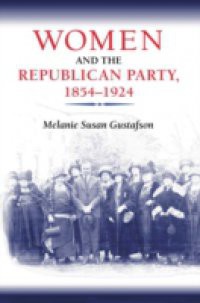An original and timely examination of women's long history of participating in partisan politics, Women and the Republican Party, 1854-1924 explores the forces that propelled women to partisan activism in an era of widespread disfranchisement and provides a new perspective on how women fashioned their political strategies and identities before and after 1920._x000B__x000B_Melanie Susan Gustafson examines women's partisan history as part of the larger history of women's political culture. Contesting the accepted notion that women were uninvolved in political parties before they formally got the vote, Gustafson reveals the length and depth of women's partisan activism between the founding of the Republican party, whose abolitionist agenda captured the loyalty of many women, and the passage of the Nineteenth Amendment._x000B__x000B_Women and the Republican Party, 1854-1924 presents the complex interplay of partisan and nonpartisan activity, the fierce debates among women about the best way to make their influence felt, and the ebb and flow of enthusiasm for women's participation within the Republican party. Gustafson documents the emergence of third parties--in particular the Progressive party, which split off from the Republican party in 1912--that fused the civic world of reform organizations with the electoral world of voting and legislation. She also profiles the leading women Republicans and activists, both familiar (Susan B. Anthony, Elizabeth Cady Stanton, Jane Addams, Mary Church Terrell) and less well known (Anna Dickinson, Victoria Woodhull, Judith Ellen Foster, Mary Ann Shadd Cary)._x000B__x000B_

